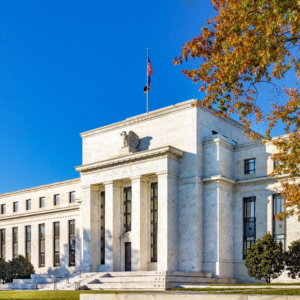 In 2022, we paid for something, and they keep promising it’s just around the corner; it’s coming, so be ready! But it hadn’t come; I never believed it was coming, and I still doubt we’ll see it soon.
In 2022, we paid for something, and they keep promising it’s just around the corner; it’s coming, so be ready! But it hadn’t come; I never believed it was coming, and I still doubt we’ll see it soon.
When the FED began the fastest interest rate hiking program in history, market pundits cried “recession” because of the inverted yield curve their actions caused. The bond market had its worst year since, ever. The stock market, responding to the bond market, sold off over 20%, falling into bear market territory about a year ago.
We paid for a recession, and we never got it.
And I don’t think it will happen any time soon, at least not in the traditional sense. The labor market is too strong. Consumers continue consuming. Inflation is within normal historical ranges, as are interest rates. We’re going to get used to these numbers.
Consequently, we’re seeing (and hearing for the first time) about a “rolling recession.” I’m not aware of this term from the past, but it makes a bit of sense. Last year, we saw the tech sector layoffs as big tech “right-sized” their workforce following the pandemic-induced buildups. Earlier this year, we had the “banking crisis” as a handful of big banks failing to adjust to the current environment ceased to exist.
Real estate markets are a mixed bag, with retail, light industrial, and warehousing booming, while office buildings, the pre-pandemic stalwart, are abysmal. We visited the LPL San Diego office in September, and about half the thirteen floors were closed. Workers whose jobs are all computer and telephone-oriented aren’t going into the office now that they’ve got a viable work-from-home alternative.
Labor strikes hurt their industry, and there are ripple effects throughout the local economies where the shutdowns happen. But barring a nationwide-impacting shutdown of some essential industry, these actions are unlikely to derail this economic expansion.
Since last October, the stock market has generally improved, albeit in its typically choppy progress. We had an average pullback through August and September of about 7%, so the September statements aren’t looking great.
The fourth quarter is often the best for the markets; of course, we’re hopeful that will be the case. However, with all the continued talk of a recession around the corner, that could become self-fulfilling. And there are many threats worldwide, including anything that emanates from Beijing, Moscow, Brussels, Washington, or even Beirut.
And in case you’re wondering, getting cheated out of a recession we paid for isn’t necessarily bad. It’s just complicated our job of navigating these markets. So, while industry adjusts to the dynamic global economic climate, we also adapt our investment portfolios with an eye to under-valued and out-of-favor asset classes.
As always, give us a call or reply with any questions, concerns, or opportunities you want to discuss.
Tracking #490917-1
The opinions voiced in this material are for general information only and are not intended to provide specific advice or recommendations for any individual. All performance referenced is historical and is no guarantee of future results. All indices are unmanaged and may not be invested into directly.
The economic forecasts set forth in this material may not develop as predicted and there can be no guarantee that strategies promoted will be successful.
